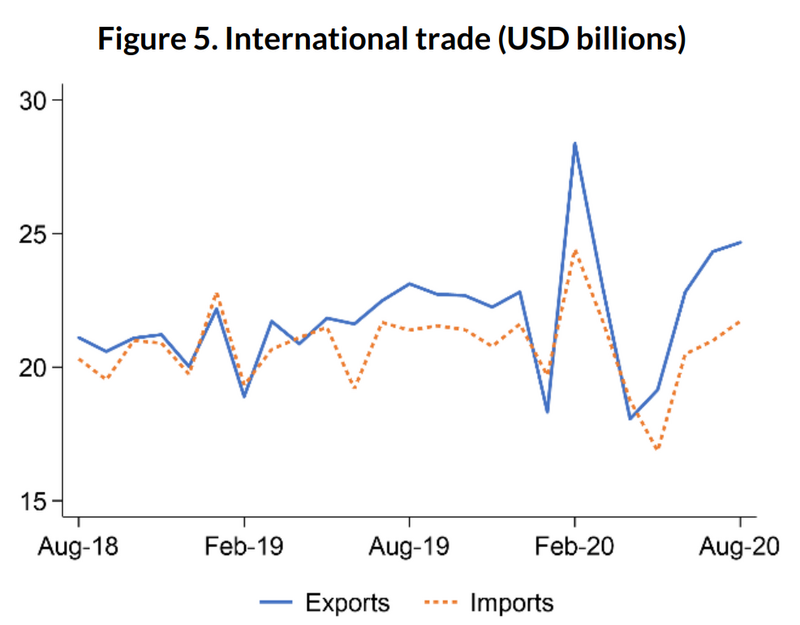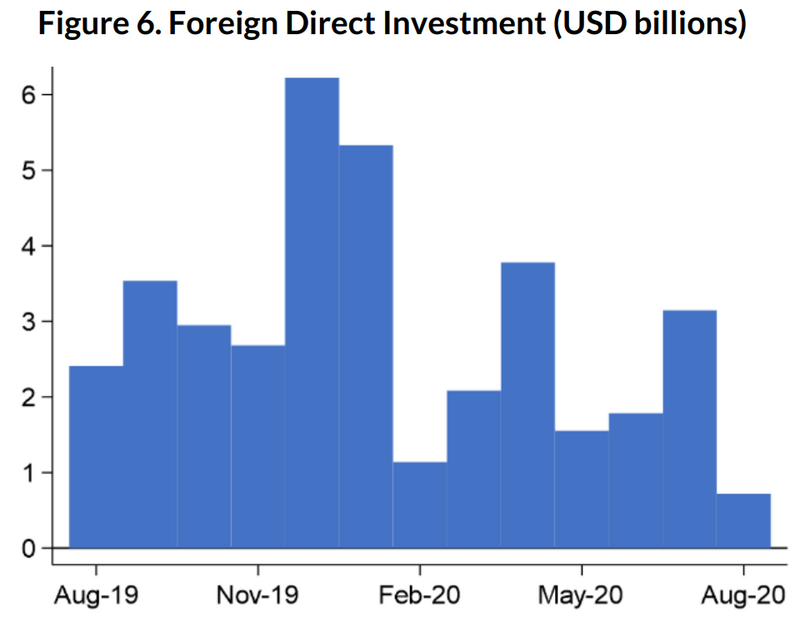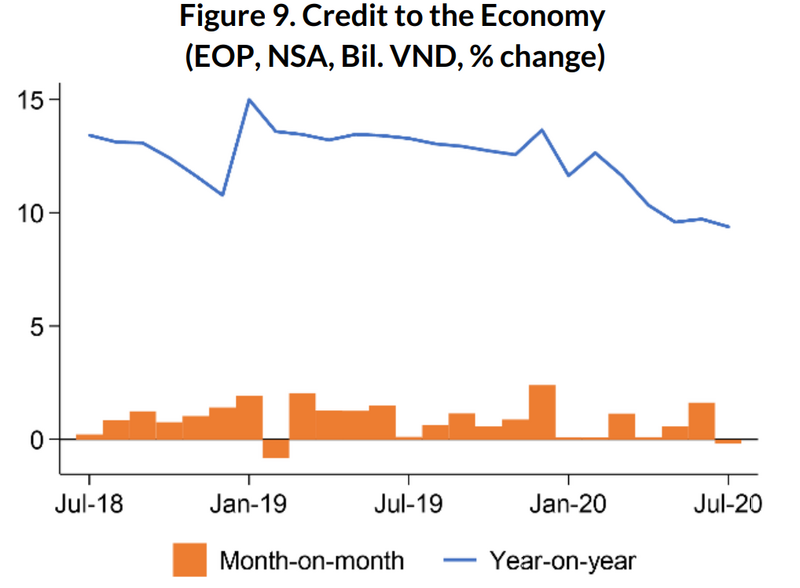Record high foreign reserves demonstrates Vietnam economic resilience: WB
The World Bank expected the government to stimulate the recovery in the short term and preserve fiscal and debt sustainability in the longer term.
As of end-August, the level of international reserves held by the State Bank of Vietnam (SBV) was equal to US$92 billion, up from US$80 billion at the end of December.
While this increase is not as rapid as reported for the same period in 2019, it demonstrates the resilience of Vietnam’s economy, which reached a record-high merchandise trade surplus and attracted substantial FDI despite the pandemic, according to the World Bank (WB).
| Source: WB. |
This performance helped mitigate the impact of lower remittances and foreign exchange earnings from foreign visitors, added the WB in its monthly macro-economic report on Vietnam.
Additionally, the resilience of Vietnam’s balance of payments was corroborated by the stability of the value of the local currency compared to the US dollar.
In August, the domestic economy expanded but at a slower rate than in July and significantly below the rates recorded a year ago.
| Source: WB. |
Industrial production grew by 2.1% year-on-year in August, compared to 4% year-on-year in July. Meanwhile, growth of retail sales of goods and services slowed to 2.3% year-on-year in August compared to 5.2% year-on-year in July.
| Source: WB. |
Both manufacturing and retail sales registered significantly slower growth than a year ago when both expanded around 10%. Despite the economy’s resilience, uncertainties—exacerbated by the Danang coronavirus outbreak—are negatively affecting domestic demand and business sentiments, asserted the report.
Significant variations are emerging by sectors and markets
Vietnam was able to maintain its merchandise trade surplus with a monthly surplus of US$3.5 billion in August, yielding a surplus of US$11.9 billion in the first eight months of 2020.
The value of total exports was flat compared to July, but grew by 6.7% year-on-year, which the WB said masks significant variations across firms as domestically owned exporters continued to exhibit strong resilience (up 18% year-on-year), while foreign-owned exporters posted a contraction of 5.6% in sales.
| Source: WB. |
Similarly, exports to the United States and China rose while exports to the EU fell slightly. Overall import values increased 3.7% month-on-month and by 1.6% year-on-year with large increases in electronic devices, appliances, iron ore, and some food items.
Nearly 3.8 million international visitors arrived in Vietnam during the first eight months of 2020, down 66.6% year-on-year. The Danang outbreak has again halted national tourism, deepening the sector’s economic woes.
| Source: WB. |
On the other hand, registered foreign direct investment (FDI) reached US$19.5 billion during the first 8 months of 2020, a 14% decline compared to the same period of 2019. This decline might reflect the increasing uncertainty related to the Danang outbreak, with foreign investors pausing to evaluate its impact on the economy.
Notably, growth of credit to the economy continued its pattern of decline first observed February, dropping to 9.7% year-on-year in June and 9.4% in July.
| Source: WB. |
This rate, though historically low, is still several times higher than the GDP growth rate. It reflects the easing of monetary and credit conditions by SBV to support the economy, the WB commented.
Government balances worsening
According to the WB, the local authorities have appropriately responded to the crisis with accommodating fiscal policy, but this has gradually reduced fiscal space.
In the first eight months of the year, state budget revenues reached 58.3% of estimated collections and 12.4% lower than the same period in 2019 due to the economic slowdown and deferred taxes for businesses and individuals to support economic recovery.
Concurrently, public expenditure was 8.2% higher than during the same period in 2019, reflecting fiscal accommodation to support economic recovery. In line with the objective to accelerate the execution of the public investment program, capital expenditures increased to VND221.7 trillion (US$9.56 billion) in the first eight months of 2020, up 41.4% compared to the same period of 2019.
Overall, most economic and financial indicators continued to demonstrate Vietnam’s resilience, but the domestic rebound moderated in August, partly as the result of the Covid-19 outbreak in Danang.
Exports continued to perform despite international headwinds, while FDI inflows slowed significantly. Going forward, attentions should be given to domestic and foreign investors who may postpone their plans in the uncertain current environment as well as the government’s response, which needs to stimulate the recovery in the short term and preserve fiscal and debt sustainability in the longer term, the WB concluded.


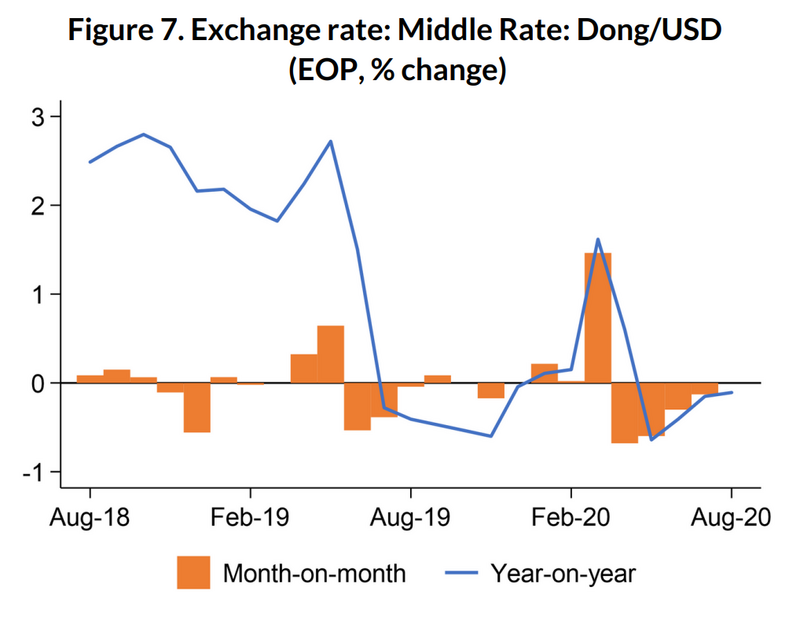
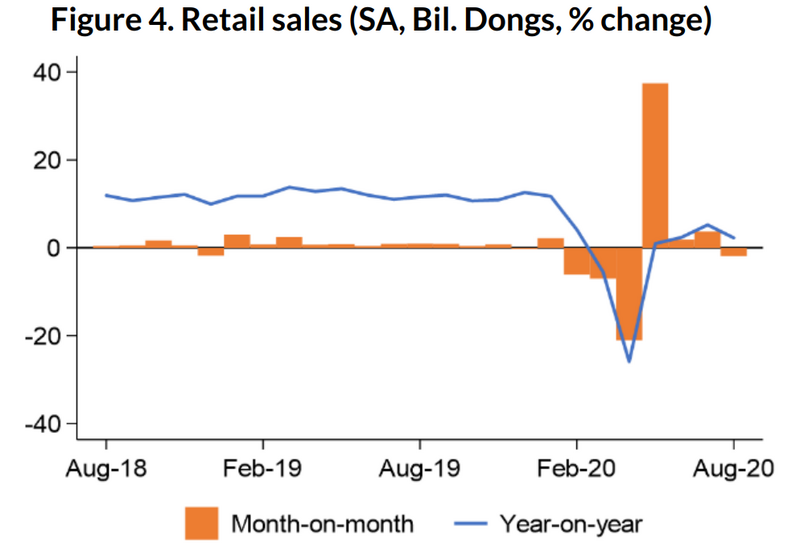
.png)
